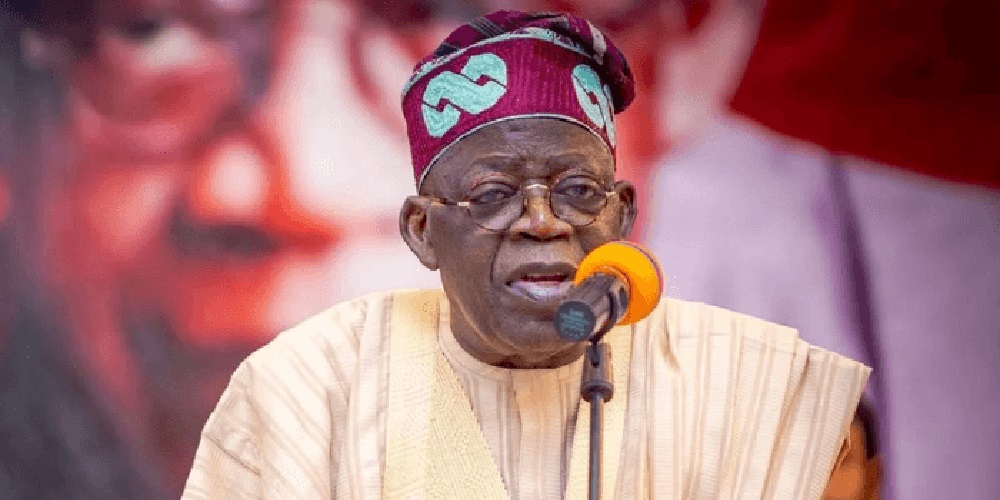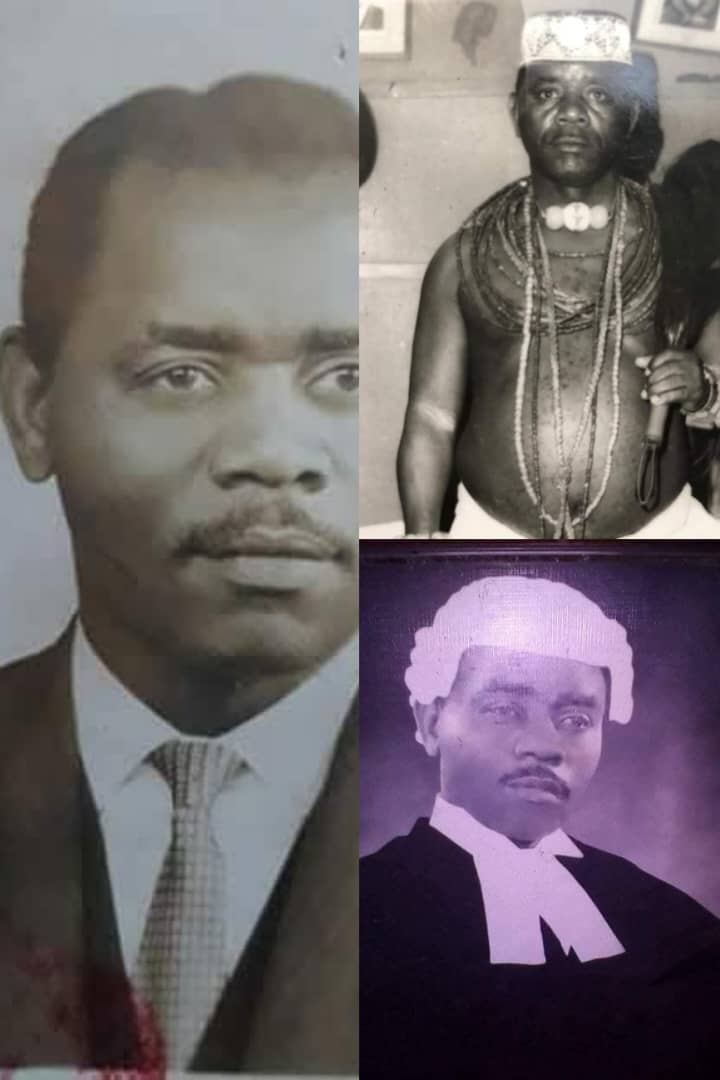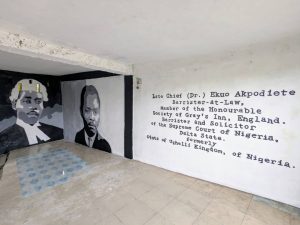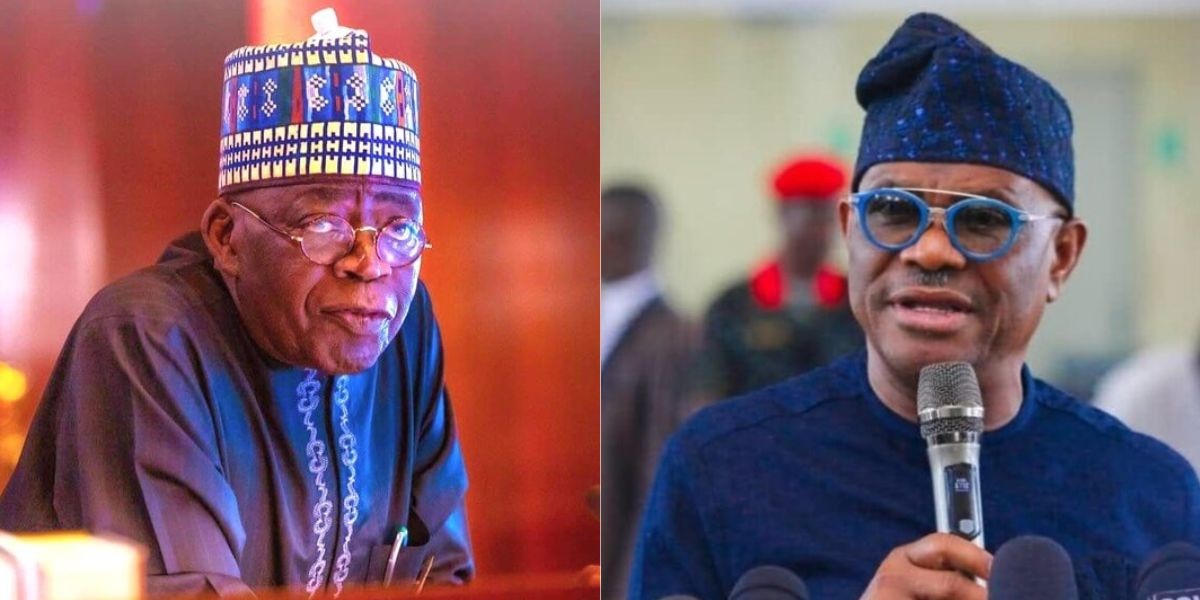Opinion
Beyond Legalism in Nigeria’s Expatriate Employment Levy Debate, By Johnson Momodu

The article “A Legal Justification for the Suspension of the Expatriate Employment Levy” by Success Chimdimma Ebulue provides the legal considerations surrounding the Expatriate Employment Levy (EEL) introduced by the Federal Government of Nigeria. While the author articulates the potential constitutional challenges faced by the EEL, it does not examine the broader context and possible implications of diminishing the importance of such policy interventions.
Firstly, the article’s focus on the constitutionality of the EEL may overlook the broader socio-economic objectives that the policy aims to achieve. The levy was initially introduced to bridge the gap between expatriates and the Nigerian labour force and address certain socio-economic considerations. By focusing predominantly on the legal dimension, we risk sidelining the policy’s potential benefits in fostering a more inclusive and equitable employment landscape in Nigeria.
Secondly, while the legal framework of any policy is paramount, it is also essential to consider the flexibility and adaptability of legal systems to accommodate innovative policy measures. The EEL represents an attempt by the Nigerian government to navigate complex socio-economic challenges. Legal systems are not static but evolve to reflect societal changes and needs. Thus, critiquing the EEL solely on the grounds of its current constitutional alignment may disregard the potential for legal reforms that can legitimize and accommodate such policies.
Moreover, the criticism of the EEL for its potential impact on Foreign Direct Investment (FDI) may not fully account for the multifaceted nature of attracting and sustaining FDI. While a conducive legal environment is crucial, investors also consider factors such as the quality of the labour force, local market dynamics, and socio-economic stability. Therefore, policies aimed at enhancing local employment and socio-economic equity, if well-implemented, could, in the long run, contribute positively to the investment climate.
Furthermore, the article’s emphasis on the procedural aspects of enacting the EEL, such as the necessity for it to be passed by the National Assembly, may be valid, but it downplayed the worth of executive discretion and policymaking in responding to urgent socio-economic needs. The government’s decision to temporarily suspend the EEL in response to stakeholder feedback demonstrates a willingness to engage, consult, and refine policy measures, which is a positive aspect of democratic governance that should not be overlooked.
It is equally important to engage with the broader socio-economic context and the potential of legal systems to evolve in response to innovative policy measures. The discussion around the EEL and its implications should thus be balanced, taking into consideration both the legal challenges and the socio-economic objectives at the heart of the policy. We should appreciate the comprehensive strategy of the Federal Government of Nigeria (FGN) to foster a more inclusive and equitable labour market.
The government has a prerogative to implement policies that address specific national challenges. While the constitutionality of any policy is paramount, the EEL is not merely a fiscal tool but a strategic intervention aimed at encouraging the employment of local talent, thus fostering skill development and knowledge transfer within Nigeria.
The argument that the EEL might deter Foreign Direct Investment (FDI) is not entirely tenable, because a nuanced approach to policy implementation can ensure that the levy does not become a hindrance to FDI. In many jurisdictions, similar policies have been successfully implemented without adversely affecting investment. The key lies in striking a balance between attracting FDI and ensuring that local labour markets benefit from foreign expertise and investment.
By incentivizing the employment of Nigerian workers, the policy would lead to a significant upskilling of the local workforce, ultimately contributing to the country’s long-term economic growth and sustainability. It is, therefore, more constructive to view the EEL as a potentially positive force for Nigeria’s socio-economic development, rather than dismissing it outright on legal and economic grounds. While the legal framework and economic implications of such policies must always be carefully considered, it is equally important to engage in constructive dialogue and seek innovative solutions that align with Nigeria’s broader development goals.
●Momodu is a public affairs commentator.
Opinion
Right of Reply: THE PUNCH AND BUSYBODY BUSINESS

The recent declaration of a State of Emergency in Rivers State has triggered diverse commentaries from a wide range of Nigerians.
Almost everyone hailed the presidential proclamation because of the visible threat to law and order in the state at the time the action was taken. Of course, there were a few naysayers who read political meanings into an otherwise sincere and prompt intervention.
One such negative interpretation is the position taken by the Editorial Board of The Punch newspaper. In one of its editorials published on the matter, the national daily claimed that the entire crisis was caused by what it described as “the needless meddlesomeness in the governance of the state by its former governor and Tinubu’s Federal Capital Territory Minister, Nyesom Wike….” It is unfortunate that this narrative and others like it have become commonplace in the media space.
How did the Editorial Board of a reputable newspaper arrive at such a conclusion? Their claim that the Sole Administrator, Admiral Ibok Ete Ibas (rtd), has been acting a script purportedly written by the Minister of the Federal Capital Territory, Nyesom Wike, is also faulty and has no iota of truth.
They also faulted the sacking of all political appointees who served in Governor Siminalayi Fubara’s administration, insinuating that their replacements were drawn from Wike’s political camp. Again, nothing can be further from the truth.
Since his appointment as the Sole Administrator of Rivers State, Admiral Ibok Ete Ibas has been running the state with the abundant human resources available in the state and has not imported anybody from outside the state. Did the Editors of The Punch really expect him to run the administration with the politicians loyal to the suspended governor?
Do they not know that the crop of political appointees who served Fubara would have found it difficult to work with the Sole Administrator?
Certainly, they know the truth, but they have chosen to stoke the fire to generate more tensions in Rivers State.
Certain interests might have commissioned this editorial to cast aspersions on the Sole Administrator and raise doubts about his capacity to run the state.
It may also have been the handiwork of Wike’s political detractors, the man whom many politicians love to hate for no other reason than envy and jealousy.
We urge the Punch newspapers to seek a better mode of intervention in the political situation and not dwell on innuendos and unsubstantiated allegations against certain political actors in order to blackmail them.
Dr Ike Odogwu
Opinion
“Chief. Dr. Ekuogbe Akpodiete; A Philanthropist, Lawyer, and Statesman”


In a life of achievement, Chief Ekuogbe Akpodiete popularly called the Duke by his contemporaries in the UK was an assessment clerk, post office clerk, a court interpreter, an educationist, a business man, a political party chieftain, a Barrister and Solicitor, a Magistrate, the Otota (the Prime Minister) of Ughelli kingdom which is the highest traditional chieftaincy office that underpin the royal office of the Ovie of Ughelli Kingdom.
He was a trail blazer, a strict disciplinarian, a lover of people, and a philantropist. He saw to it that people lived in peace and happiness.
Born on the 4th of April, 1924, to parents cut from an industrious mould, Chief Ekuogbe Rowland Gregory Akpodiete took zealously to education that neither his mother Ughweriaka who was a trader, nor his father Akpodiete who was a farmer had.
He attended the Native Authority Primary School, Ughelli, and Enitona High School, Port Harcourt, for his secondary school education.
He thereafter had a brief teaching career in primary schools in Ofuoma near Ughelli, he worked as a process clerk in the then Sapele Township Department between 1950 and 1953, serving at the same time as an interpreter in the local courts.
He proceeded to the United Kingdom to seek the proverbial Golden Fleece where he worked and paid his way through, studying Law. He was admitted into the Honourable society of Gray’s Inn, England, in 1965, and shortly after, he returned home to Nigeria and attended the Nigerian Law School. He was called to the Nigerian Bar in 1966. He immediately started practice in Lagos. However, his practice in Lagos was regrettably abridged by the Nigerian Civil War, which drove him to his hometown Ughelli in 1967, where he continued to practise among his kith and kin as the first Legal Practitioner.
Chief Ekuogbe Akpodiete established himself in Ughelli. After the civil war, he served in the now defunct Mid-western State Judiciary from 1972 to 1975 as a Magistrate.
He was conferred with the chieftaincy title of Urhukperovie of Ughelli kingdom (the light of the King) by the then reigning Ovie of Ughelli, His Royal Highness Oharisi II of blessed memory in 1977.
In the quest for more knowledge, he went back to England for his Master’s degree in law (LL.M) and later a Ph.D. at the University of Warwick.
He was awarded an honourary doctorate degree (Ph.D) by Tenesse Christian University from the United States of America in 1991.
He became the Otota (the Prime Minister) of Ughelli Kingdom in 1986, an office he occupied until his demise on 9th April 1995.
Chief Ekuogbe Akpodiete was also politically involved. In the heady days of the Awolowo-led Unity Party of Nigeria, he was the party’s legal adviser in Ughelli and was on hand to assist during Chief Obafemi Awolowo’s campaign hosting in Ughelli and its environs.
In view of his love for people and entertainment, he established a popular cinema house, one of the first in Ughelli, known as REGA cinema, coined from his names, alongside an entertainment place called Unutakunu (people talk to people).
Chief Ekuogbe Akpodiete was blessed with wives and many children, grandchildren, and great grand children.
Mr. Olotu Akpodiete, PhD
Executive Director
Olotu & Ekuogbe Rowland Akpodiete foundation
Opinion
OF ABUJA INVESTMENT COMPANY, TAMUNO, WIKE, AND TINUBU’S “RENEWED HOPE” AGENDA

BY BOLAJI AFOLABI
Established in 1994 by the military administration of late General Sani Abacha, the Abuja Investments Company Limited, (AICL) is positioned as a government-owned investment enterprise charged with the responsibility to drive economic development in the federal capital territory. Its primary goal is to promote strategic investment and boost realistic economic growth of the FCT through different platforms and various approaches. Key functions of the AICL include Business Development; Investment and Development; Public-Private Partnership; Facility Management; and Infrastructure Development. The AICL has several subsidiaries and associates including Abuja Property Development Company, (APDC); Abuja Markets Management Limited, (AMML); Abuja Urban Mass Transport Company, (AUMTCO); Abuja Technology Village Free Zone; Abuja Film Village International Limited; PowerNoth/AICL Equipment Leasing Company. Others include Aso Savings and Loans PLC; Abuja Power Company Limited; Abuja Leasing Company; and Abuja Downtown Mall.
From 1994 till the exit of the military from national governance in 1999, the AICL recorded few achievements. During this period, the AUMTCO, and Aso Savings and Loans were established. With the dawn of democratic government in 1999, it was expected that the FCT, being an emerging federal capital will benefit hugely from the activities of the AICL. However, nothing much was achieved between 1999 and 2003. Somehow, Mallam Nasir El-Rufai, who administered the FCT from July 2003 to July 2007, was able to change the tide. Under his watch, the AICL came alive, recorded some measure of visibility and attracted positive public perception. Sadly, the AICL took a downward slide thereafter. None of the past ministers; Aliyu Modibbo Umar, Adamu Aliero, Bala Mohammed, and Muhammed Musa Bello provided the necessary political will and support for the AICL to maximally attain full potential. Indeed, it got worse between 2015 and May 2023 that many residents forgot that the company was still existing.
Many critical stakeholders were worried about the depth of neglect, static state, and institutional damage that the AICL was subjected to. Patterned after similar agencies in some developing nations, where measurable strides are achieved, the reverse happened with the AICL, that it became recurring causes of worries, and regrets to many people. Alhaji Aminu Mohammed, a former staff member of FCTA said, “it was shameful that the company remained largely dormant for many years.” Corroborating, Mr. Gilbert Gyang, an Abuja based investment expert declared, “the AICL, especially during the last administration was arguably comatose. It merely existed on paper, there was no visible investment initiative geared towards economic growth in the federal capital.” For Ms. Winifred Anosike, former banker, and development consultant, “it’s painful that the company was practically inactive for years. It was not only affecting economic growth in Abuja but impacted negatively on people and firms with result-driven initiatives who desired to contribute actively to the development of the capital city.”
With the emergence and subsequent inauguration of President Bola Tinubu on May 29, 2023, key players in the investment sector were hopeful that, the AICL may breathe again. Many hinged their thoughts on Tinubu’s background and experiences in accounting, financing, investment, governance, and leadership. Though with caveats; the choice of who minister’s FCT will be pivotal. Convinced that the AICL should be the “engine room” of economic growth and development of the capital city, many hoped that Tinubu will deploy the appropriate person to oversee the strategic ministry. Some stakeholders concluded that a wrong choice may consign the AICL into the “wilderness of inactivity” and likely extinction. Somehow, key players in the investment sector, at different fora and platforms were upbeat that Tinubu will pick the right person, who they hope will lead the way towards enabling the AICL to get back its mojo.
In August 2023, the deployment of Barrister Nyesom Ezenwo Wike as the Minister of the FCT; the 8th since Nigeria’s return to democratic government elicited public endorsement. Tinubu’s choice was largely celebrated by many stakeholders, as it renewed optimism about the prospects of AICL reviving its activities. Cognisant of Wike’s legendary achievements, as Rivers state Governor where he embarked on massive infrastructure development and more, turning the “Treasure Base” to the central investment hub in the South South zone, and emerging as second to Lagos state, many were confident that “light will come” to the AICL. A similar spate of enthusiasm and expectations was prevalent in and around the AICL. Many of the staff members also shared the positions.
The atmosphere at the Garki District offices of AICL on April 7, 2024 was ecstatic when news filtered in that Wike had appointed Dr. Maureen Tamuno as the Group Managing Director. A few hours later, it turned to frenzy after goggle checks were done by some staff members to have glimpses of her profile. Impressed, and satisfied with her multi-disciplinary academic background, and multi-faceted careers, her appointment was described as well-thought, and well-deserving. The unanimity of opinion was that, being a round peg in a round hole, the AICL will leverage on her far-reaching experiences and exposures as a former lawmaker, seasoned diplomat, public administrator, and boardroom strategist.
Aware and ready for the challenges ahead, many staff members were visibly excited when Tamuno assumed office the following day. Thus emerging as the first female chief executive of the AICL, since its 30 years of existence. Described as an accomplished technocrat with identifiable achievements in leadership, strategy, diplomacy, administration, and consulting, Tamuno, in her maiden speech confirmed the postulations of staff members. She emphasized her, “commitment to open-door policy to all staff, urging everyone to operate at the highest standard of transparency, confidentiality, accountability, and ethical business practices.” Continuing, she assured staff members that her, “strategic approach and consumer-centric philosophy are expected to propel the AICL to new heights of success.”
From reports, challenged by the enormity of the task ahead, conscious of the hugely untapped potential of the AICL, buoyed by the political support of Wike, and encouraged by the passion of the staff members, Tamuno literally hit the ground running. As a globally-recognized business development, management, and investment professional, she approached her assignment with iron-cast resolve, and the precision of a surgeon. First off, she embarked on critical reviews and overview of the AICL trajectory from inception; identified germane issues; evolved strategies for re-positioning the company; enunciated quick-wins, short-term, medium-term, and long-term measures for development, and some others. All these were geared towards delivering (or surpassing) the Ministerial mandate, and also ensuring that the AICL contributes its quota to Tinubu’s “Renewed Hope” agenda.
Indeed, it is imperative to note that the AICL, under the superintendent of Tamuno has literally drawn water out of rocks; which before now was largely unthinkable. That the soft-spoken and resourceful amazon; and her team were able to make noticeable impact within just one year, speaks volumes about her ingenuity, and indomitable spirit. In a broad sense, these achievements include encouraging economic diversification; expanding investment opportunities; exploring business and investment exchanges; deepening subsidiaries collaboration; and fostering diplomatic relationships.
In practical terms, the AICL, through some landmark initiatives has provided the platform for the promotion of trade and commerce, as well as economic growth and sustainable investment in the FCT. It is imperative to recall some of these laudable and trail-blazing projects. A few days back, the solar powered Farmers Market in Utako District and Kugbo International Market were commissioned by the FCT Minister of State, Dr. Mariya Mahmud. Speaking at the epoch making events, Mahmud eulogized Tamuno for completing the first-of-its-kind projects which, “would provide employment opportunities for a wide range of people in line with the “Renewed Hope” agenda.” While explaining that the projects are under the Public Private Partnership initiative of the AICL, Tamuno promised that, “under the Build Operate and Transfer (BOT) arrangement, the government will combine with the private sector to create profitable and sustainable public infrastructure. We identified Small and Medium Enterprises, (SMEs) as the backbone of any prosperous economy, because they create jobs that drive sustainable economic growth.” To underscore AICL’s commitment towards encouraging the informal sector, shops were gifted to some hardworking traders from all the six Area Councils of the FCT.
In October 2024, the AICL organized a two-day Abuja Business and Investment Summit with the theme: “Optimizing Investments Through Partnership.” The event, geared towards promoting investment opportunities in the FCT, was attended by major stakeholders in finance, investment, manufacturing, and other sectors. Participants opened new alliances, partnerships, and collaborations for new opportunities and innovations that will lead to micro and macro development. Tamuno, who by the way was one-time Nigeria’s Ambassador to Jamaica is leveraging on her diplomatic credentials and network to re-position the AICL. She is regularly engaging, and exploring investment opportunities with foreign countries through their diplomats in Nigeria. Through her participation at the maiden Nigeria-Kazakhstan Business Conference which was held in Abuja, in 2024, there are advanced plans for the establishment of city-to-city flights between both countries, as well as collaborations in agriculture, education, technology, logistics, and more.
Agreed, the journey is somewhat far but the AICL, under the new chief executive has shown unbridled commitment, and unflinching fervor in elevating the status, and relevance of the company towards engendering meaningful growth and development of the FCT. Tamuno has shown relentless drive and boundless energies towards justifying the confidence reposed in her by Wike. Posting an encouraging report-card in one year deserves commendations and encouragement. Mr. Olugbenga Okanlawon, an Abuja based public affairs analyst declared that, “she has shown that she is the right person for the job. Considering what the AICL has achieved in one year, it is clear that more grounds will be covered in terms of growth and development.” A frequent caller to the AICL who preferred anonymity said, “the GMD has brought a new lease of life to the place, and everybody has imbibed her can-do-it spirit with much pride, and belief.”
* BOLAJI AFOLABI, a Development Communications specialist was with the Office of Public Affairs, The Presidency, Abuja.
-

 News17 hours ago
News17 hours agoTears, anguish as Plateau Community buries 51 killed by bandits
-

 News17 hours ago
News17 hours agoSHOCKING! One month after giving birth, woman discovers another baby in her womb
-

 News15 hours ago
News15 hours agoCBEX: 60 fraudulent Ponzi scheme operators to avoid in Nigeria
-

 News17 hours ago
News17 hours agoAngry investors raid CBEX office, loot assets in Ibadan after digital Platform crash
-

 News23 hours ago
News23 hours agoPeter Obi speaks as Benue govt. blocks humanitarian visit
-

 Politics17 hours ago
Politics17 hours agoIgbo Youths Set To Mobilize 5 Million Man-March In Support Of Tinubu, Kalu
-

 News24 hours ago
News24 hours agoFUOYE VC suspended over sexual harassment allegations
-

 News17 hours ago
News17 hours ago‘Not something I’d wish on anyone’ — Melinda Gates opens up on divorce





